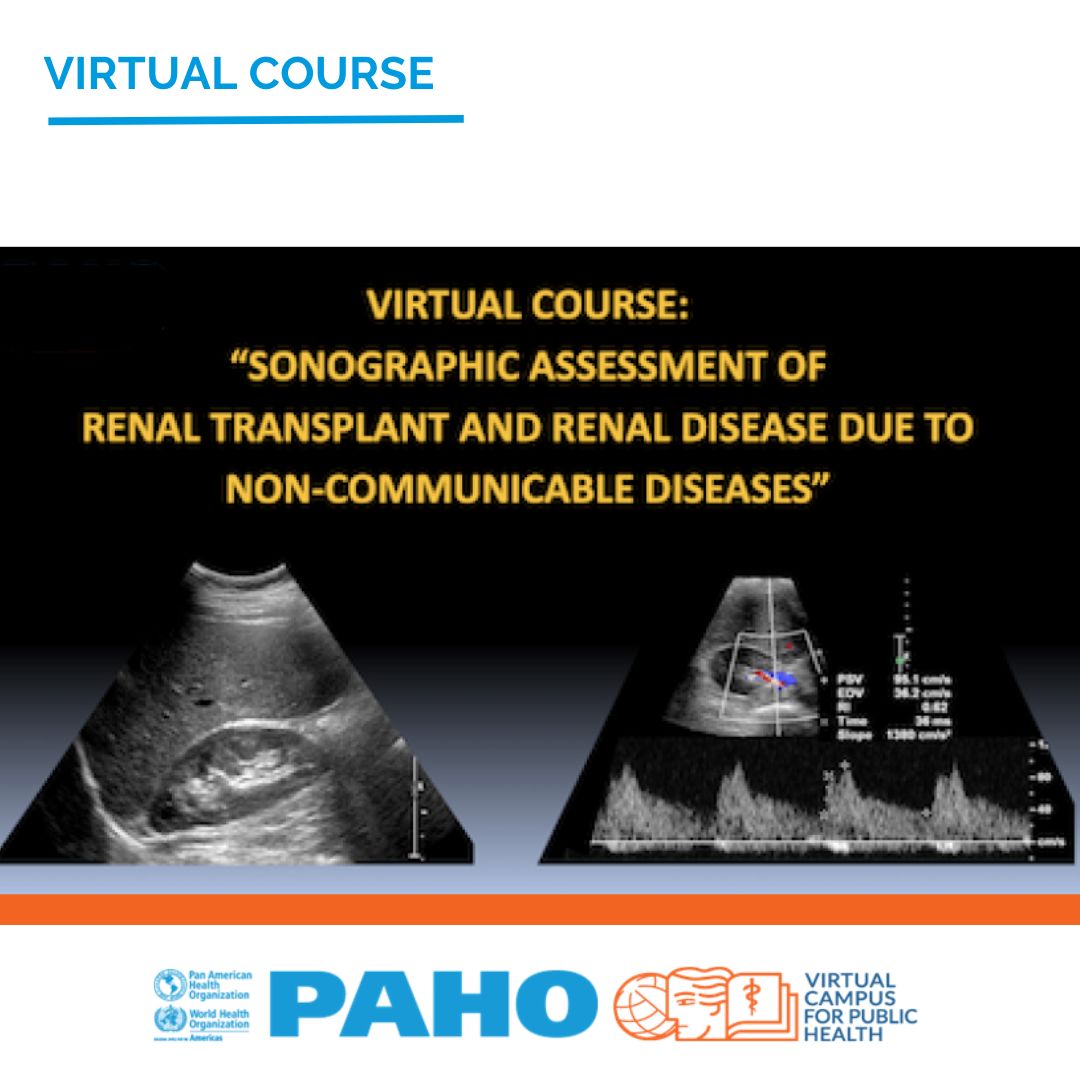
This course has been closed to new registrations. If you were already enrolled, you can complete the course activities and download your certificate until 31 October, 2025.
Introduction to Course
Non-communicable diseases (NCDs) are responsible for an estimated 80% of all deaths in the Region of the Americas and those diseases include but are not limited to cardiovascular diseases, cancer, diabetes, and chronic respiratory diseases. In the Caribbean, 40,480 deaths were attributed to NDCs in 2016 [ (Pan American Health Organization, 2019). Although kidney disease has many complex causes, it is considered a comorbidity of diabetes or hypertension (Luyckx, Tonelli, & Stanifer, 2018). In 2015, 1.2 million people died from kidney failure while an estimated 1.7 million cause of death may be attributed to acute kidney injury every year (Luyckx, Tonelli, & Stanifer, 2018).
Diagnosing kidney disease early can slow or prevent the worsening of kidney function. For this reason, timely and accurate diagnosis are important for the quality of care provided. Ultrasound (US) allows the non-invasive evaluation of morphological changes of structure and patterns of renal and extra-renal vascularization.
Purpose/Objective
The purpose and objective of the course is to provide the participants with the necessary tools to utilize ultrasound for renal transplant and renal assessment on patients with non-communicable diseases.
Course description and audience
The course includes a series of rich-media, interactive modules that incorporate lectures, case studies, short quizzes and a Final Exam. The course also includes explanatory notes and resources to help participants easily understand the topics. The target audience is sonographers, radiographers, physicians and other health professionals who utilize ultrasound and or have a formal training in ultrasound.
Estimated course length
4 hours
Modality
Self-learning course, free of charge, open to the public and without deadlines to complete it.
Modules and Objectives
The course is structured in four modules, with each module divided into Part A and Part B.
Module 1: Renal Anatomy
-
Review basic embryology and development of the kidneys
-
Discuss anatomy and vasculature of the permanent kidneys
-
Review renal and urinary variants
Module 2: Renal Pathology
-
Review pathology related to non-communicable diseases including diabetes
-
Review common inflammatory conditions
-
Discuss benign focal neoplasms of the kidney
-
Review malignant neoplasms of the kidney
-
Discuss associated color and pulsed wave Doppler analysis
Module 3: Renal Transplants
-
Discuss reasons for renal transplantation
-
Review surgical techniques and anastomoses
-
Explain pulsed wave Doppler associated with post-transplant complications
Module 4: Optimizing Renal Exams and Accepted Protocols
-
Discuss gray scale image optimization techniques specific to the kidney
-
Discuss basic color Doppler optimization techniques specific to the kidney
-
Discuss pulsed wave Doppler optimization techniques specific to the kidney
-
Discuss standard protocols related to sonographic imaging of the kidneys
